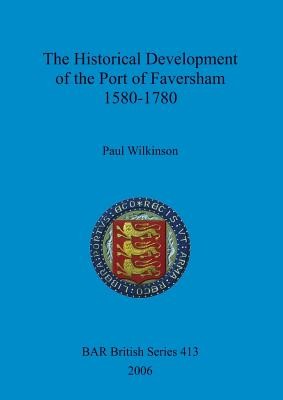
- We will send in 10–14 business days.
- Author: Paul Wilkinson
- Publisher: British Archaeological Reports Oxford Ltd
- Year: 2006
- Pages: 205
- ISBN-10: 1841719463
- ISBN-13: 9781841719467
- Format: 21 x 29.7 x 1.5 cm, minkšti viršeliai
- Language: English
- SAVE -10% with code: EXTRA
The Historical Development of the Port of Faversham 1580-1780 (e-book) (used book) | bookbook.eu
Reviews
Description
This work is the first comprehensive historical and archaeological investigation into the maritime organization of the port of Faversham, Kent, SE England. The period examined is 1580-1780. Faversham, a multi-functional town, was well placed to take advantage of its maritime position in the Swale, its closeness to Canterbury, and the need to ship grain to London from this fertile crescent of North Kent. An examination of the original and early development of the port is complemented by an analysis of the ships and port administration. Unique methods of ship operation and manning are investigated, and a comprehensive survey of the shipping fleets of Kent during their formative years undertaken. This study is also concerned with analyzing the variety of mercantile responses to marketing opportunities. Apart from providing London with ever-increasing agricultural cargoes (and return cargoes of manufactured goods), Faversham developed a very healthy trade in wool, oysters, fishing, and the manufacture of gunpowder. This movement of commodities is investigated, and the inter-play between changes in production patterns assessed, while the significance of the maritime development of the port provides ample scope for pioneering a study of port logistics and organization. An examination of the origins and early developments of Faversham's maritime industry is long overdue, and the uncovering of new evidence makes it possible to unravel the complexities of this mercantile activity during Faversham 's formative years.
EXTRA 10 % discount with code: EXTRA
The promotion ends in 21d.02:52:05
The discount code is valid when purchasing from 10 €. Discounts do not stack.
- Author: Paul Wilkinson
- Publisher: British Archaeological Reports Oxford Ltd
- Year: 2006
- Pages: 205
- ISBN-10: 1841719463
- ISBN-13: 9781841719467
- Format: 21 x 29.7 x 1.5 cm, minkšti viršeliai
- Language: English English
This work is the first comprehensive historical and archaeological investigation into the maritime organization of the port of Faversham, Kent, SE England. The period examined is 1580-1780. Faversham, a multi-functional town, was well placed to take advantage of its maritime position in the Swale, its closeness to Canterbury, and the need to ship grain to London from this fertile crescent of North Kent. An examination of the original and early development of the port is complemented by an analysis of the ships and port administration. Unique methods of ship operation and manning are investigated, and a comprehensive survey of the shipping fleets of Kent during their formative years undertaken. This study is also concerned with analyzing the variety of mercantile responses to marketing opportunities. Apart from providing London with ever-increasing agricultural cargoes (and return cargoes of manufactured goods), Faversham developed a very healthy trade in wool, oysters, fishing, and the manufacture of gunpowder. This movement of commodities is investigated, and the inter-play between changes in production patterns assessed, while the significance of the maritime development of the port provides ample scope for pioneering a study of port logistics and organization. An examination of the origins and early developments of Faversham's maritime industry is long overdue, and the uncovering of new evidence makes it possible to unravel the complexities of this mercantile activity during Faversham 's formative years.


Reviews